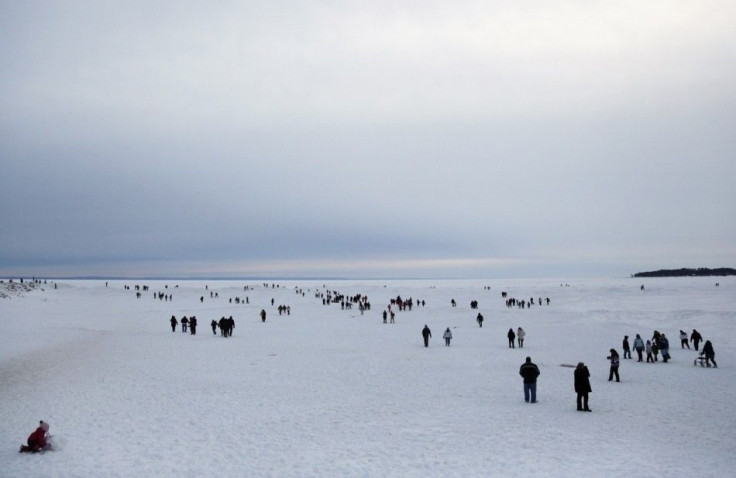Canada To Have Shorter, Warmer Winter Thanks To El Niño – Forecast Outlook; Prices Of Natural Gas Fall

Winter is about to set in Canada, and Environment Canada has released its 2014-2015 outlook. From the looks of it, it seems the country will get to enjoy a shorter yet warmer winter this time, triggered by the prevailing El Niño.
Compared to 2013's brutal winter, where some parts of the country experienced a "polar vortex," a slightly warmer winter season is in the offing for Canadians this 2014. "There's no area of significant population where we're showing colder than normal," Dave Phillips, senior climatologist, told CBC News on Tuesday. Canadians won't need to migrate or hibernate this time just to escape the cold, he added.
The warmer winter was because of the El Niño. It has pushed the warm water near the equator in the Pacific ocean, resulting to warmer and drier conditions for much of North America. Only a small area around Lake Superior and part of Nunavut will experience similar really winter conditions. Although it is a weak El Niño, "regardless of its intensity, it still has an influence." The 2013-2014 winter conditions was the coldest in 68 years of record-keeping, Phillips said.
Vancouver Island almost to Lake Superior, including in Yukon and the Northwest Territories, will experience warmer-than-normal temperatures, based on forecast models for December, January and February. Much of Atlantic Canada will also get to experience warmer than normal temperatures, Phillips added.
However, weather forecast conditions for central Canada are more uncertain. Ontario and Quebec could see more seasonal temperatures, he said. With this, Atlantic provinces could experience a warmer-than-normal winter because of the warm coastal air.
In late November, the Weather Channel said Canadians could experience the same bitter winter conditions of 2013, also fuelled by the El Niño. However, it won't be long and as frigid.
News of possible warmer winter conditions have immediately created an impact in prices of natural gas. BNN reported natural gas for January plummeted on the New York Mercantile Exchange by 12.7 cents, or 3.1 percent, to $3.961 US per million British thermal units. It was the lowest intraday price since Nov 14, it added.
"With the absence of any notable cold weather on the horizon the market has dramatically sold off," Teri Viswanath, director of commodities strategy at BNP Paribas SA in New York, told Bloomberg News.





















